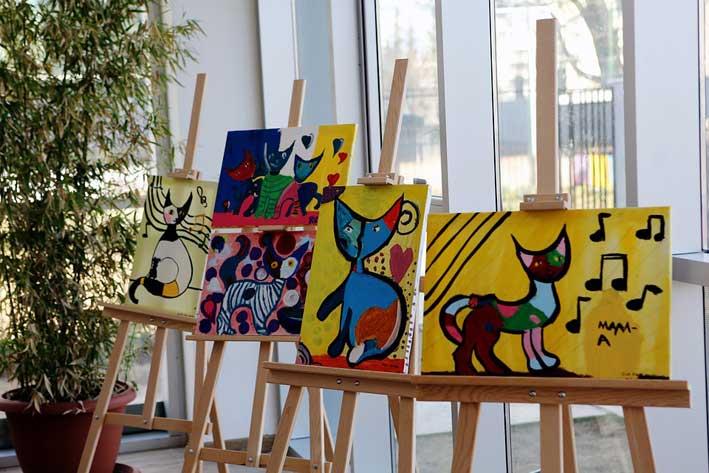Last year many new digital tokens have been created on a Blockchain. Although in the last couple of months the market of digital assets faced challenges and was dominated by bearish trends, it is expected that the table will turn and more industries will implement tokens and benefit from this thriving industry. In 2019 we will see more non-liquid assets in various industries such as real estate, precious metals, art, and payment solutions amongst others.
Many believe that the tokenisation of assets could completely reshape how investors value their assets, and how they look at them in the future. The driving force behind this evolution is the almost unstoppable rise of Blockchain and Bitcoin. Whilst the latter has seen a slight decrease in its popularity, the former, and asset tokens are set to be on the rise.
But why now? Cryptocurrency and Blockchain make it much more cost-effective to securitise common assets and to turn anything with value into a marketable security. This is done by creating a digital representation of ownership known as a security token.
For example, instead of a single person owning a Dalí painting, the owner could offer multiple investors a digital share of ownership instead, meaning that one item could have many part owners. These fractional share holders would then be able to sell or trade their token to take advantage of rising or falling prices. Thanks to its robust digital security, this token is able to be quickly traded online on a daily basis.
If tokenisation starts to occur within various industries, we will witness a significant increase in listings of newer assets, eventually surpassing the number of traditional asset types such as commercial mortgage backed securities, loans, and other assets on the New York Stock Exchange.
The tokenisation of these new types of assets can bring about the increase of liquidity to the market and 24/7 stock trading, resulting in lower transaction fees, fractional ownership, quicker settlements, and a much broader selection of possibilities with regards to smart contracts. As a result, the realisation of such benefits would lead to a year of substantial growth in 2019.
These are the five types of assets that we think can be widely tokenised to this year.

Venture Capital Funds
A notoriously un-liquid asset class, Venture Capital Funds usually make investors wait between five to ten years before seeing any kind of return. Projects such as Blockchain capital, EQUI and Spice VC are aiming to lower the entry barrier for investors whilst giving them the opportunity to buy parts of investment portfolios that they would have previously not had access to. Venture capitalists would also enjoy access to a larger pool of investors, while the increased liquidity would enable more retail investors to participate in this asset class.
Precious Metals
Several start-ups are looking into the possibility of individual investors trading in diamonds, gold and silver over a Blockchain platform. Sellers could list their diamonds on the platform and then deliver them to a custodian who would only release them upon completion of the sales transaction for instance.
This method could provide the much-needed level of transparency within the industry, as well as help investors determine value and set prices in closer detail. By tokenising precious metals, the possibility of fractional ownership and greater transparency will attract more and more investors to the marketplace.

Real Estate
A growing number of start-ups have all ventured into the Blockchain real estate market. By tokenising commercial and residential real estate, they have not only made headlines but have changed the way that people invest in property.
Investors are now able to buy a fraction of a property at a higher price, earn income on those properties, and then sell the fractions at a higher value as and when they choose. The tokenisation of real estate assets offers greater liquidity to owners as well as long capital lock-ins.
Rare Art and Luxury Cars
People do not usually invest in art because the entry barriers are high. Previously the preserve of the rich and famous, these assets are now likely to be available on the Blockchain to retail investors. Art platforms that tokenise the masterpieces or luxuries allow fractional ownership of items.
Using cryptocurrencies individuals can purchase shares in various works of art. Buyers and sellers will be able to directly transact without the need for auction houses and their commission margins. Once investors have one or more shares in a luxury in their portfolio, they can manage them like any other investment - holding, selling, or trading depending on fluctuations in the value of the artwork in question.
Sports Teams and Athletes
Sports is an industry that has been implementing this new technology to help create a decentralised marketplace where investors and fans have the chance to invest in clubs and players, as well as trade benefits provided by image rights, player transfers, salaries, and ticketing. Fans are able to invest in young players and provide the financial support required to further their careers in return for future profits.
There are currently over $260 trillion of real-world assets and most of them are still signified by paper and are highly illiquid. With the help of DLT technology through the tokenisation, ownership will continue to move from analogue to digital. This could result in the release of assets into the new liquid markets, while lowering the entry barriers for potential investors. In this scenario, absolutely any asset will become liquid and tradable.
If you would like to know more about E&S Group, you can send us an email on [email protected]